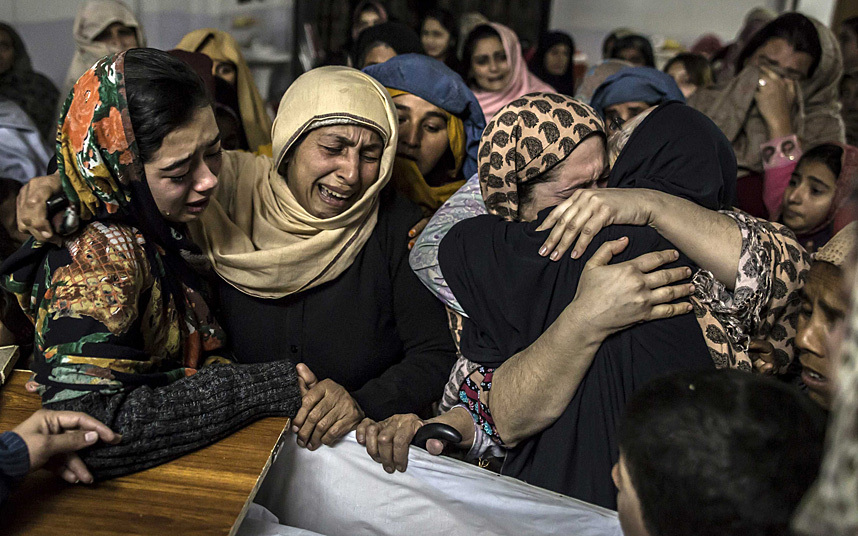Pakistan Hangs Four Gunmen Linked To Deadly Peshawar School Attack
Grieving the victims of the Peshawar school attack

NEW DELHI: Two weeks ahead of the anniversary of a Taliban led attack that killed 150 people, mostly children, at an army-run school in Peshawar, Pakistan has hanged four men linked to the December 16, 2014 massacre.
The men were sentenced to death by a military court and are the first to be hanged in relation to the attack. The attack, itself claimed by the Taliban as retribution for Operation Zarb e Azb and Operation Khyber 1 -- as the Pakistani military is targeting militant strongholds in North Waziristan and Khyber Agency -- led to a step up in military crackdown on militant groups within Pakistan, including the establishment of military courts to try terror suspects and the resumption of capital punishment after a six-year moratorium.
The four men were convicted by one of the newly set up military courts, accused of aiding and abetting the militants who carried out the attack. They were executed early on Wednesday at a jail in the north-western city of Kohat, after Army Chief General Raheel Sharif signed death warrants for the militants identified as Maulvi Abdus Salam, Hazrat Ali, Mujeebur Rehman and Sabeel.
The militants have been identified as part of the Toheedwal Jihad Group, a little-known faction of the Pakistani Taliban.
Pakistan, a country associated with the export of terror -- especially to Afghanistan and Kashmir, India -- has seen an increase in violence as the Tehreek-i-Taliban Pakistan (TTP) steps up its fight against the Pakistani state. The Pakistani government has been accused of differentiating between ‘good’ Taliban and ‘bad’ Taliban -- with the former term referring to militant groups active across the border in Afghanistan and India, as the two countries respectively accuse Pakistan of aiding and abetting terrorism, whereas the latter term refers to militant groups fighting the Pakistani state. The operations in North Waziristan and Khyber Agency target the strongholds of the TTP -- the militant group most active within Pakistan’s borders.
The Peshawar attack, in fact, came as a response to the operations in North Waziristan and Khyber Agency, with the militant group claiming the attack as retribution. The cycle of violence is evident by the fact that Operation Zarb-e-Azb itself was initiated in response to an attack on the Karachi International Airport that killed 39 people and was claimed by the TTP, which the latter linked directly to peace talks with the government.
The Pakistani civilian government had been pushing for a peace process with the Pakistani Taliban, leading to rumours of a civilian-military riff as the army pushed for a military response. The military got its way following the Karachi Airport Attack, as TTP spokesperson Shahidullah Shahid referred to the talks as a “tool of war” and confirmed that the attack on the Karachi airport was planned much earlier but had been delayed owing to the ceasefire announced in connection with the peace talks.
Shahid added that the attack was additionally linked to avenging the death of TTP commander Hakimullah Mehsud in a United States drone strike. “We carried out this attack on the Karachi airport and it is a message to the Pakistani government that we are still alive to react over the killings of innocent people in bomb attacks on their villages,” Shahid said.
The Peshawar attack brought the army and civilian government on the same page, as all pretence of a peace dialogue was shattered and the Pakistani government stepped up its offensive against the militants in North Waziristan and Khyber Agency. The result, however, is the continuation of the cycle of violence, of which Peshawar was the first big casualty.



